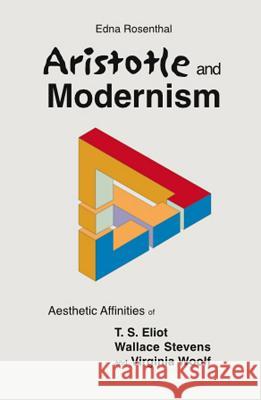Aristotle and Modernism: Aesthetic Affinities of T S Eliot, Wallace Stevens and Virginia Woolf » książka
Aristotle and Modernism: Aesthetic Affinities of T S Eliot, Wallace Stevens and Virginia Woolf
ISBN-13: 9781845191719 / Angielski / Twarda / 2008 / 152 str.
An examination of literary modernism in its relation to the history of criticism, this work analyzes the role of Aristotelian principles, primarily the notion of formal affectivism, in the critical writings of three modernists who have invariably been thought to uphold incompatible aesthetic beliefs. In an original approach, the author seeks a diachronic solution to a synchronic problem the debate about the modern, reflected in the claims and counterclaims made by the modernists themselves and by subsequent literary critics and theorists. This methodology is largely dictated by the nature of the subject the adversarial critical orientation of T. S. Eliot, Wallace Stevens, and Virginia Woolf, and the attempt to reconcile their differences by reconfiguring them in terms of the Aristotelian critical tradition. The result is a conclusive demonstration of how Eliot incorporated central Aristotelian dramatic principles into his view of literary history and criticism, and, similarly, how both Stevens and Woolf, through historically determined conceptual shifts, implicitly endorse and use formal affectivism and dramatic criteria, which, as may be expected, they almost never refer back to Aristotle or to his foremost modernist defender, Eliot. This discussion of literary modernism from the perspective of the history of Aristotelian aesthetics enhances understanding of these authors, both as individual writer-critics and as a representative group of modernists, as well as deepening appreciation of critical history and the abiding relevance of Aristotle s Poetics."











